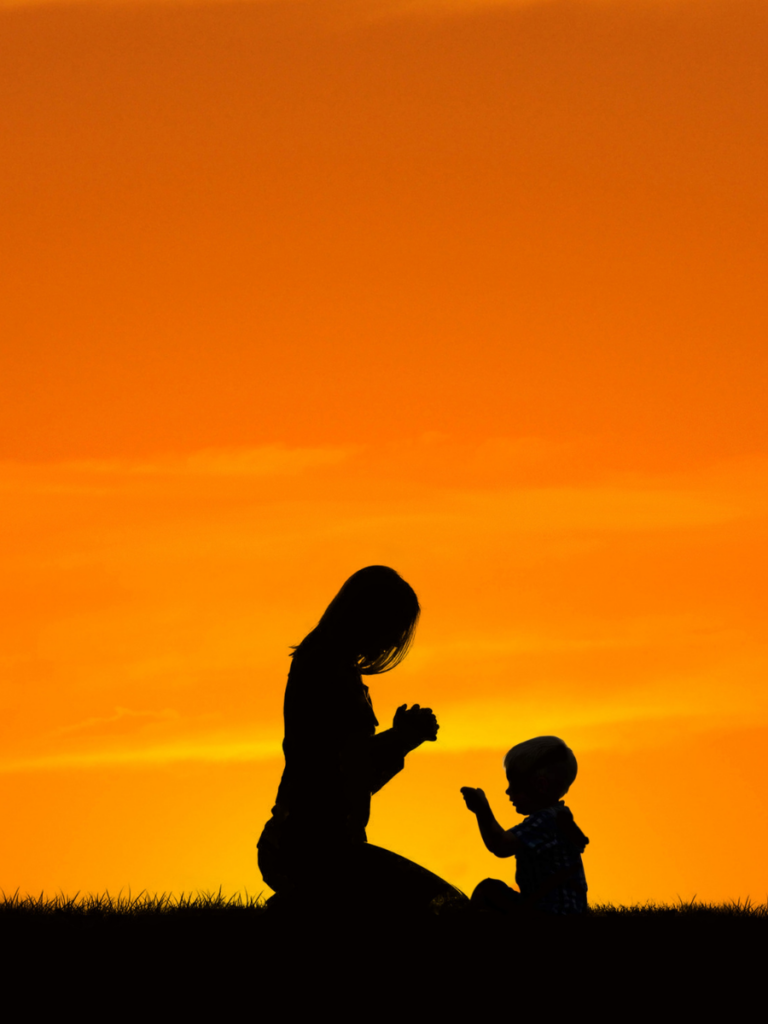Disclosure: This post contains affiliate links, meaning I may earn a small commission if you purchase through the links, at no extra cost to you. As an Amazon Associate, I earn from qualifying purchases. Please no there is no pressure to buy, this is just to spread information and share my experiences.
Parenting a child with autism has been one of the most transformative journeys of my life. Before my son was born, all I cared about was that he had ten fingers and ten toes and that he would be happy. I dreamed of being the best mom I could be for him. I was determined to give him a better childhood than I had- which is every parent’s hope. Read more about this desire in my previous blog Parenting Through the Lens of My Childhood: Healing from Trauma, Overcoming Fear, and Breaking Generational Patterns But as he grew, I started to notice things that made me pause. He seemed to have intense separation anxiety from such a young age. My husband and I would sneak out of the house when we went on dates, leaving behind a screaming baby. Something didn’t feel right, but I couldn’t put my finger on it.
He was so quiet. He never really spoke a word, and he was a late walker. I remember watching other kids his age running around the playground while he was still crawling. I tried not to compare, but deep down, I knew something was different. It wasn’t until he was in daycare that we started to get some answers. They conducted an evaluation and scheduled a meeting with my husband and me. I remember them telling us that he struggled with transitions in and out of activities. They noted that while he was social, he played next to other kids but not with them—a behavior they called parallel play.
I would pick him up from daycare, put him in his car seat, and try to talk to him. “How was your day?” I’d ask, but he’d just gaze out the window, staring into space. It was as if the words were trapped inside him, unable to come out. It was hard, so hard, to never hear him say “Mommy,” “Daddy,” or “I love you.” I held on to hope that one day he would speak, but it felt like he was in his own world.
Mourning Expectations: Parenting a Child with Autism
There was a time when I felt so heavily burdened with sadness and overwhelmed by the challenges of raising a child with autism. I dropped to my knees and prayed to God, pouring out my grief. I prayed about my life, my son, and all the expectations I had carried with me of the happy little family I thought I’d have.
No one talks about the challenges kids can face. No one prepares you for the moments when your vision of parenthood doesn’t match the reality. n those early days of parenting a child with autism, I had to mourn the expectations I had for parenthood and trust in God’s plan. I had to release those expectations and accept the son God had given me, trusting that His plan for my son—and for all my children—was far greater than anything I could imagine.
It was around this time that I found a book that would help me through so many of these feelings: Autism’s Hidden Blessings: Discovering God’s Promises for Autistic Children and Their Families. This book reminded me that my son was intentionally designed by God, not broken or in need of fixing. It taught me that my job wasn’t to grieve the child I didn’t have but to celebrate the child I was blessed with. The book beautifully highlighted God’s promises for our children and reassured me that there is purpose and meaning in every challenge.
Finding Faith Amid the Challenges of Parenting a Child with Autism
When my son was diagnosed with autism, I felt overwhelmed by guilt, fear, and uncertainty. In my darkest moments, aith became a foundation as I navigated the journey of parenting a child with autism, finding hope in God’s promises. Autism’s Hidden Blessings became a lifeline, helping me to see my son’s autism not as a burden but as a blessing. It reminded me that God has a purpose for every child, including my son, and that He doesn’t make mistakes.
One of the most powerful lessons I took from the book was that God equips us as parents for the children He gives us. Even when I felt unworthy or incapable, I was reminded that God chose me for this role for a reason. My son wasn’t just a gift to me—he was also shaping me into the person and mother I was meant to become.

The Weight of Trying to “Fix” My Child with Autism
Before I truly accepted my son for who he was, I spent years trying to “fix” him. I researched every supposed “cure” I could find, forcing him to drink concoctions I’d read about online. I put him through gluten-free diets, dairy-free diets, sugar-free diets, paleo, additive-free diets—you name it, we tried it. I believed I was helping him, but what he saw was a mom who didn’t accept him for who he was. He learned to see his autism as a problem because I treated it like one.
What was the message I was given my son- what he saw my fears, my worries, and my sadness. I unknowingly taught him to hate this part of himself. That realization crushed me, and it’s a guilt I still carry. As I grew in my journey as a mother, I worked hard to show him how much I loved him and how proud I was of him. But the damage had been done, and he struggled to believe me because his hate for himself had already grown so strong.
The book reminded me that trying to “fix” my son was like denying the perfection of God’s creation. Instead of focusing on changing him, I needed to focus on celebrating him for who he was. That realization changed everything. I began to see the ways God was working through my son, using him to teach me patience, resilience, and unconditional love.
Learning Through Two Journeys
When his younger brother came along and was also diagnosed with autism, I was prepared. This time, I started early with intervention and created a nurturing, supportive environment from the beginning. I’ve watched his little brother thrive and grow into a happy child who embraces life. My older son recently told me that he envies his brother’s happiness. That broke my heart. I told him, “You were just like that.” I reminded him of his love for Thomas the Train, how he could talk about trains all day, just like his brother talks about space now.
If only I had known then what I know now—when my oldest son needed it most. But I believe every moment serves a purpose. I shared with him a story I heard years ago about how spirits choose to be autistic because they evolve much quicker than others. I told him there are spirits here on Earth whose only job is to be themselves, and that’s more than enough. I explained that he has been one of the greatest teachers in my life, helping me grow spiritually, mentally, and emotionally. He is the reason I’ve become who I am today. I told him that autism is his superpower, and he thanked me for sharing that with him.
The Struggles and Triumphs of School
The hardest thing for my son has always been school. I’ve watched him persevere through so many challenges over the past 12 years. He’s been in mainstream classes from the beginning, maintaining a 3.31 GPA all by himself. It hasn’t been easy. He’s struggled through tough math classes and has worked tirelessly to pull grades up from Fs to As. In middle school, he took the initiative to stay after school with his math and English teachers until he understood the material.
I’ve told him countless times that school isn’t just about As and Bs. It’s about developing perseverance and resilience. It’s about how much he’s grown and overcome in these 12 years. Teachers and mentors have reached out to tell me how much he has impacted their lives, but he didn’t believe me when I told him he deserves to graduate. I reminded him of all the hard work he’s put in and told him, “Don’t let it be for nothing.” This year, I will get to watch him walk across the stage to receive his diploma, and I couldn’t be prouder.

Finding His Place in the World
Recently, my son told me something that brought tears to my eyes: “I love the farm because it’s where I feel normal.”
This moment was made possible by the incredible support system that has surrounded us. One of the greatest blessings has been the Virginia Department for Aging and Rehabilitation Services (DARS). DARS helps young adults with disabilities transition into adulthood by offering resources for education, vocational training, job placement, and independent living.
Through DARS, my son connected with Didlake, an organization that provides on-the-job coaching and employment opportunities for individuals with disabilities. Didlake introduced him to A Farm Less Ordinary, a community that provides adults with intellectual, developmental, and cognitive disabilities with meaningful employment opportunities working at their farm.
At first, he was hesitant. He had fears of being around bees and felt anxious about communicating with people he didn’t know. But with encouragement and support, he decided to give it a try—and now he loves it. At the farm, he has learned to grow fruits, vegetables, herbs, and flowers from start to finish and prepare them for sale at farmers’ markets. The job has ignited a passion for agriculture in him, and he’s even considering pursuing it as a career.
The growth I’ve seen in him through this experience has been incredible. Working at the farm has not only built his confidence but also provided a sense of calm and peace. Something I’ve come to realize is that touching the soil, being in nature, and spending time under the sun have a profoundly healing effect on the mind and body. For my son, gardening has done so much more than help him feel “normal”—it has been a holistic resource for healing, bringing him a sense of purpose and serenity.
I truly believe that every child with a disability or unique need can benefit from holistic activities like gardening. If you want to inspire a love for growing and agriculture in your own child, a Gardening Kit for Kids is a wonderful place to start. It’s a simple, hands-on way to introduce them to the joys of nurturing plants and watching them grow. Whether it’s a small flower bed, a vegetable patch, or just a few pots of herbs, gardening can be a deeply rewarding experience for children. It could even spark a lifelong passion, just like it has for my son.
Celebrating Milestones While Parenting a Child with Autism
Parenting a child with autism has taught me more than I ever imagined. It has stretched me, humbled me, and made me question everything I thought I knew about love, resilience, and what it means to grow. For years, I tried to force my son to fit into the world, but now I see that he was teaching me to fit into his—a world that values authenticity, patience, and seeing beauty in the little things.
To everyone navigating the joys and challenges of parenting a child with autism, remember that your love and presence are enough. There are no mistakes in their creation or in yours. Trust in the love you share, and lean into the lessons you’re learning together. Your child’s path may look different from what you imagined, but every step—no matter how difficult—has a purpose. Celebrate the small victories, trust in the support systems around you, and know that your child is capable of more than you ever thought possible.



